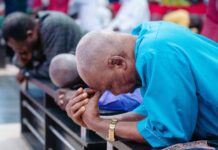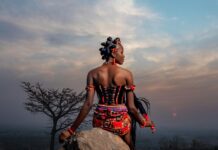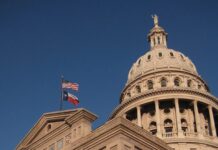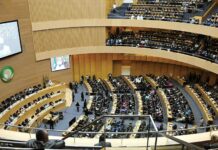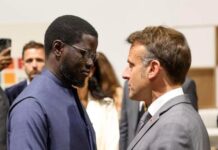During the 2023 presidential election, a major point of contention that had arisen among the electorate was the Muslim-Muslim ticket. After it had been revealed that Bola Tinubu and Atiku Abubakar would be the two candidates of the two major political parties in Nigeria, many people (particularly from the South) had taken issue with that. The issue people had been that, because the former president, Mohammadu Buhari, was also a Muslim. Therefore many saw it as the time for a Christian from the South to take the helm of the presidency.
However, the reality is that there is no rule in the Nigerian constitution that states that there should be such a change within the presidency at the start of a new administration. And honestly, it would be quite ridiculous if there was such a rule. However, there had long been an unspoken rule that that should be the case. There has been a precedent that had been set over the years to ensure that each part of Nigeria is represented within the federal government
It has normally been the case that if the President is a Muslim from the North, then his Vice president would be a Christian from the South. And the next year there would be a switch. So a Christian from the South would take over the presidency, and a Muslim from the North would occupy the vice-presidency. Examples of this can date back to after the return to democracy in Nigeria, Olusegun Obasanjo, a Christian from the South East, who served as Nigeria’s president from 1999 to 2007 had Atiku Abubakar, a Muslim from the North, as his Vice President.
Then after Obasanjo, you had Umaru Musa Yar’Adua, a Muslim who served as president from 2007 to 2010, when he passed away in office. His vice president was Goodluck Jonathan, who was a Christian from Southern Nigeria. When Goodluck Jonathan became president, his vice president was Namadi Sambo, a Muslim from Northern Nigeria. Even President Buhari, a Hausa Muslim, had Yemi Osibajo, A Yoruba Christian, as his vice president.
This even goes as far back as Nigeria’s Independence. When Nigeria first became independent and was using the parliamentary system of government, Dr Nnamdi Azikiwe, a Yoruba Christian from the South, served as president of Nigeria, while Abubakar Tafawa Balewa, who was a Fulani and a Muslim from the North served as the Nigeria’s first and only prime minister.
Precedent dictated that the next Nigerian president should have been a Christian from the South. However, that obviously did not happen as Bola Ahmed Tinubu, had been elected into the presidency. Tinubu’s election pretty much obliterated this precedent. While he is a Yoruba from Southern Nigeria, he is of the Muslim faith. Likewise, his vice-president, Kashim Shettima, the former governor of Borno state, is also a Muslim. So with that it meant we had a Muslim-Muslim ticket within a Muslim-Muslim ticket. And yet they are the ones who managed to come out on top. Though, it would be worth pointing out that there are still many who view Tinubu’s 2023 election victory as illegitimate.
The argument could be made that this precedent that had been in place is a large part of the reason Peter Obi managed to gain such popularity. Peter Obi is a Christian from Southern Nigeria and a member of the Igbo tribe. And in following the precedent set, his vice presidential pick was Senator Yusuf Datti Baba-Ahmed, a Muslim and a member of the Hausa tribe from Northern Nigeria. Likewise, we saw many Southerners who felt disenfranchised with the Muslim-Muslim ticket flock towards Peter Obi camp.
African countries were not given the privilege of drawing out their own borders. The countries present today within Africa were mostly drawn up by European powers during the colonial era. As a result, different ethnic groups that share different religions and ways of life were lumped together. Colonial powers sought to exploit these divisions in order to maintain control during the colonial period across the continent.
This sort of tribal dynamic in politics is unfortunately not uncommon among African nations, even in the modern day. Tribal politics has become the norm in many places around the continent. Rather than elections being about policy or ideology, it is often the linguistic, religious, or tribal characteristics of candidates that hold more sway in people’s voting preferences. This sort of voting style is incredibly unproductive and has only ever had detrimental effects.
Tribal politics distract from the real issues plaguing Nigeria, such as inadequate infrastructure investment and pervasive government corruption. The ethnic background of politicians becomes irrelevant in the face of widespread poverty. What truly matters are the policies and the direction in which politicians aim to steer the country, not their tribal affiliations. Tribal politics is a race to the bottom, typically resulting in the election of unskilled politicians who exploit ethnic differences to gain votes. This approach only serves to foster division within our society, exacerbating tensions and undermining our national unity.
A president’s effectiveness is determined by how well they implement their policies in the country. Their region of origin or religious beliefs are irrelevant. What truly matters is their commitment to progress and the well-being of all Nigerians. Tribal politics have been practised for so long within Nigeria, and we have seen where it has got us so far. Perhaps it is time for us to instead begin voting for candidates on their merits instead.





